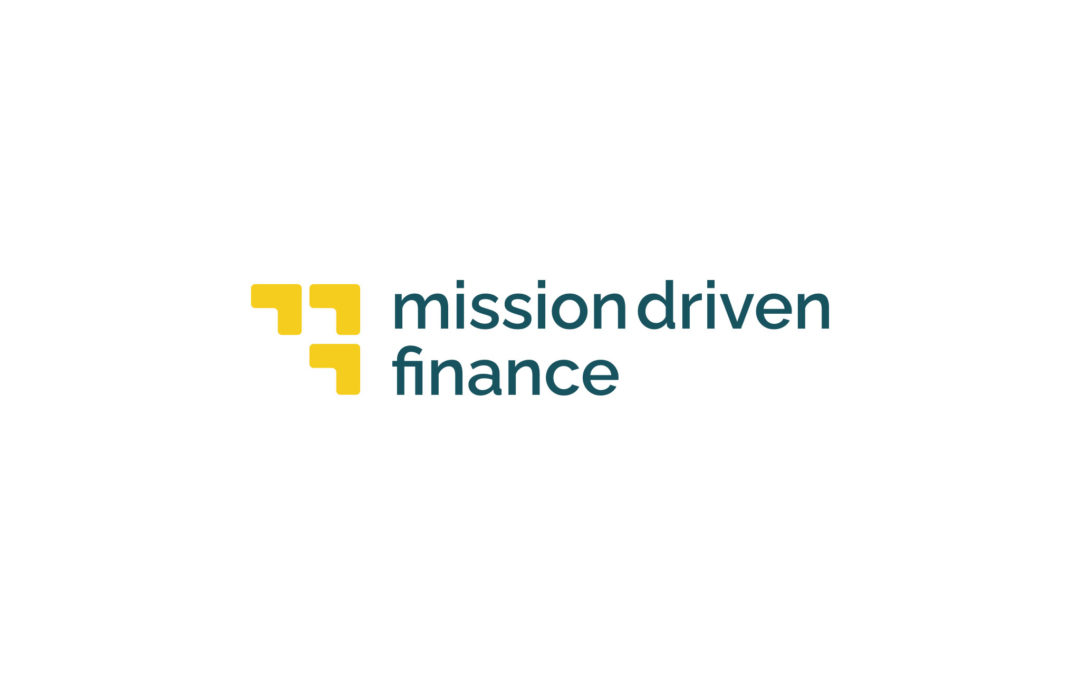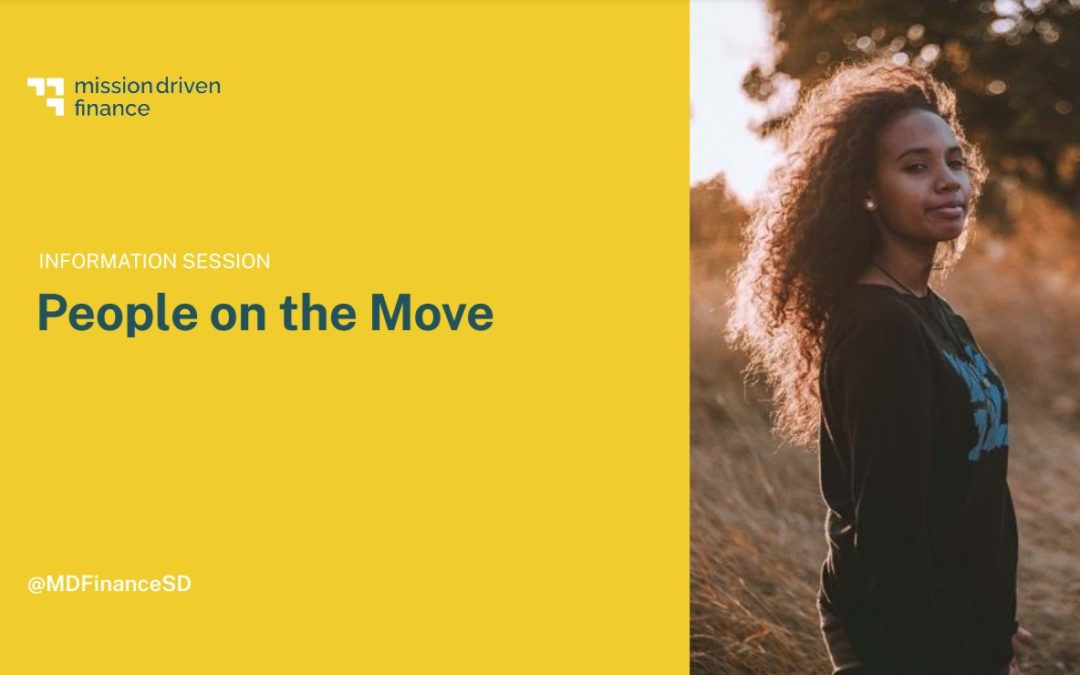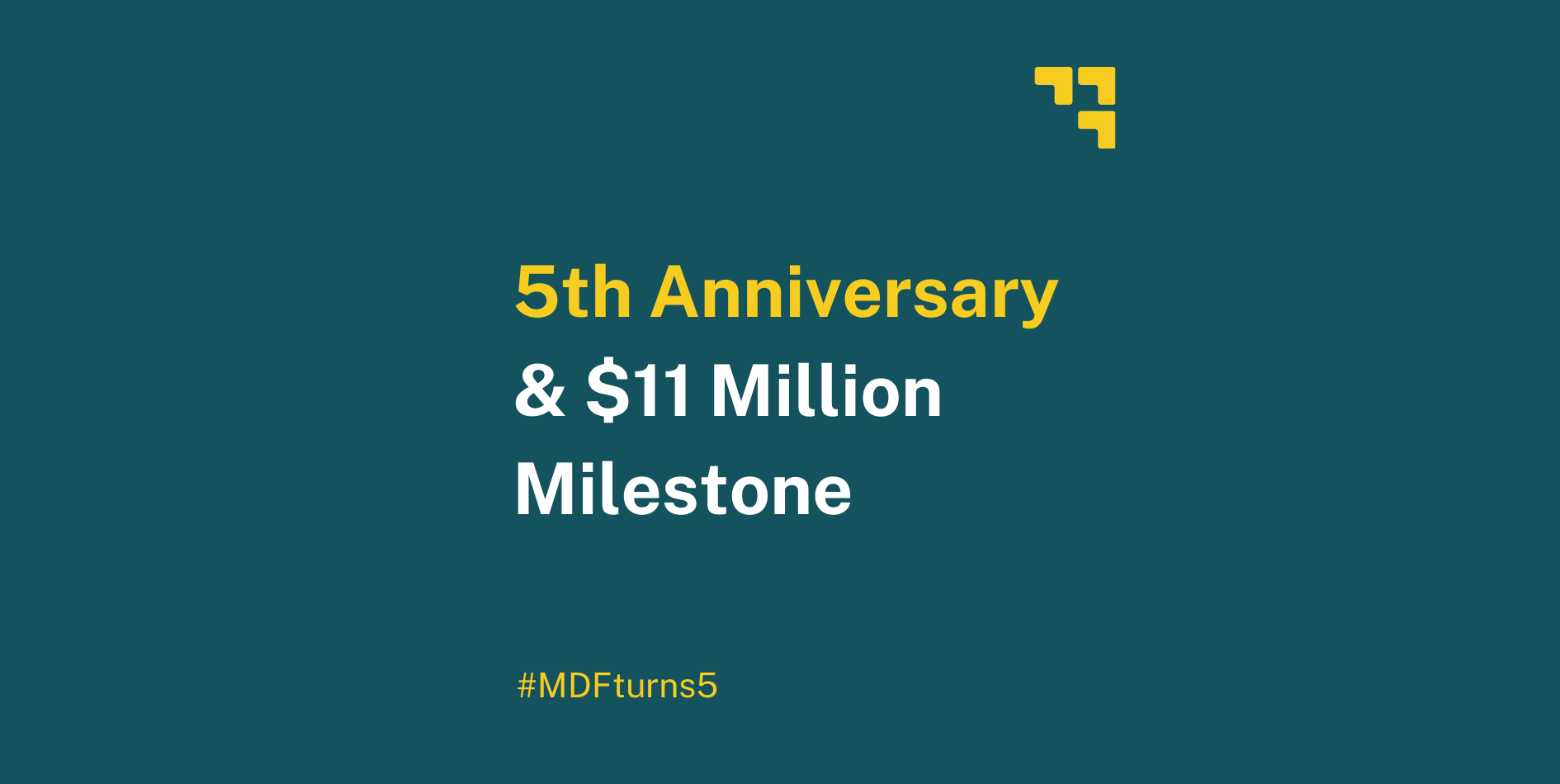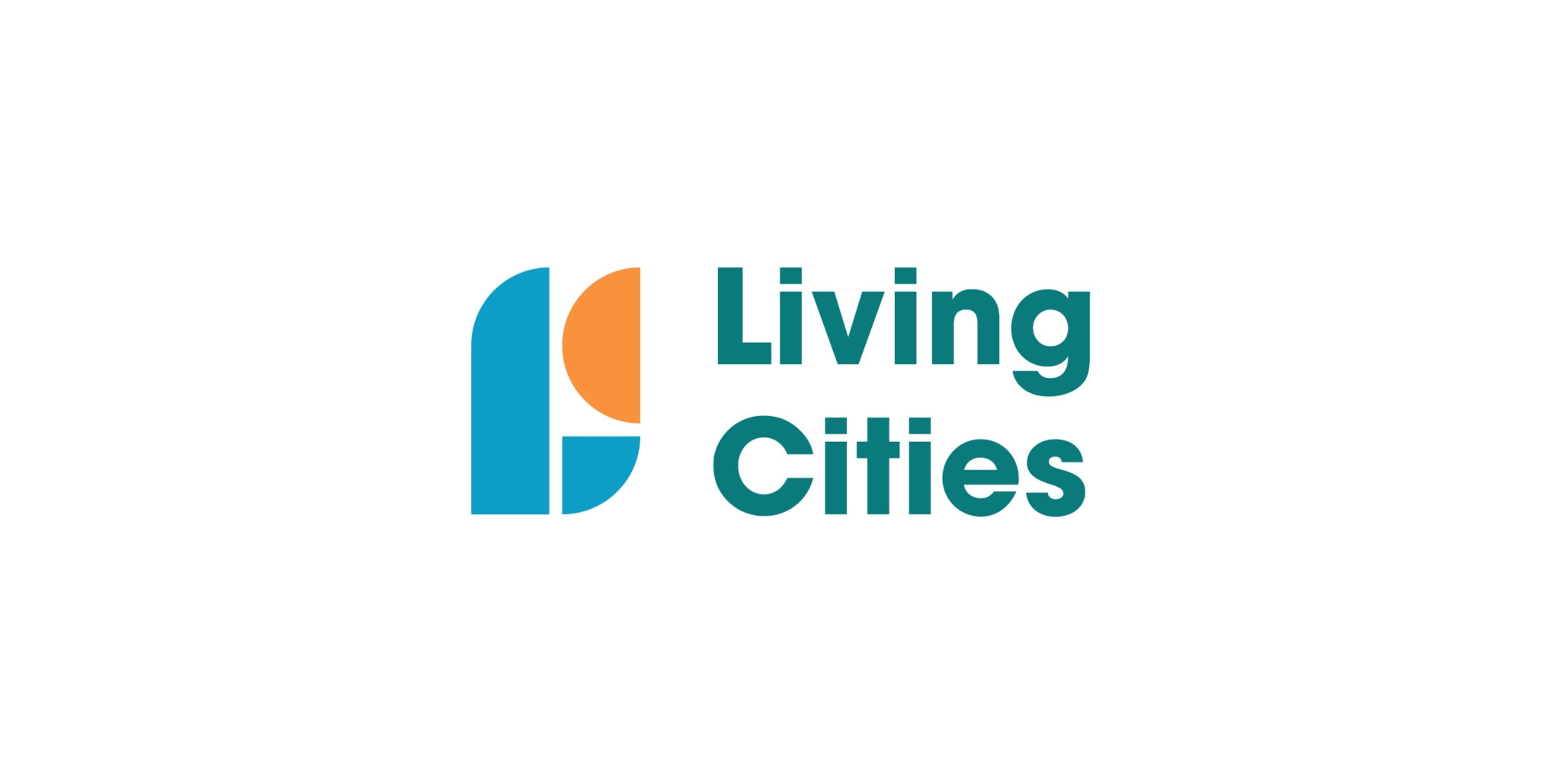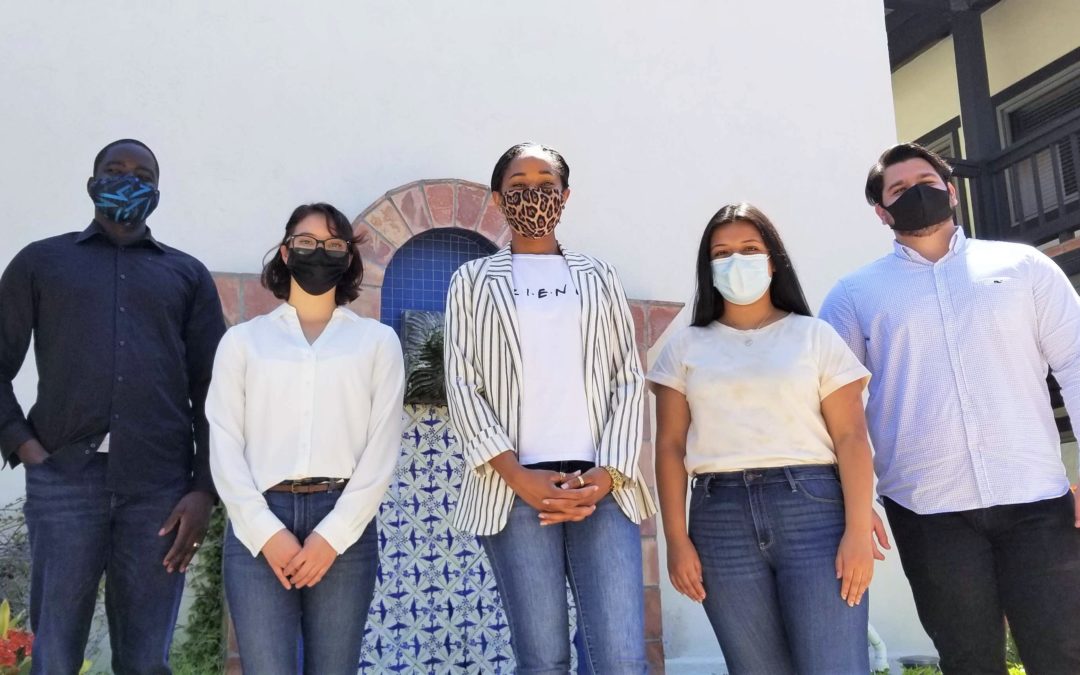
What we learned in our very first Community Finance Fellowship
Now, a year later, we are proud to announce that the first cohort of the Community Finance Fellowship—Louise Jordan, Benson Ochira, Andrew Moncada, Essence Rodriguez, and Crystal Sevilla—is graduating.
Let’s step back a bit to understand what we were trying to do with this fellowship.
Lived, learned, and labored experiences
We launched the Community Finance Fellowship to help change the face of finance—moving beyond a mandated headcount or checkbox diversity (or tokenism, another way racism manifests) and towards a culture of belonging that fully values the unique humanity of each team member. More on this later.
At Mission Driven Finance (MDF), we believe that a team with true diversity of experiences and workstyles improves services, products, and decision making for greater community impact. Because of this, instead of requiring higher education degrees or existing experience in the investment field, we looked for candidates with a combined five years of lived, learned, and labored experience.
We made sure that anyone participating in the fellowship would be full-time, paid members of our team, and that the wages would at least be living wage for the County of San Diego. Otherwise, we knew that only those with personal means would be able to participate and that we’d be exploiting free or “cheap” labor.
Outreach and recruitment
Having an open-door hiring policy doesn’t get you very far if the folks you want to hire don’t know the door exists. We leveraged new and existing relationships with impact-aligned partners in the community that, for instance, support positive youth development and ones that support first-generation college students. We’d like to thank these partners for introducing some of the brilliant candidates, including Dr. Tom Wong at the U.S. Immigration Policy Center at UC San Diego, RISE San Diego, Promises2Kids, First Tee of San Diego, Reality Changers, Access Youth Academy, and Barrio Logan College Institute.
We paid careful attention to every step following recruitment—the application process, application questions, screening, interview questions, and finally, creating a shortlist of qualified candidates and the final selection.
Application & interviews
Applying for jobs and programs can be tedious. We made sure to have the application viewable all on one page—no surprise questions you didn’t prepare for. Similar to our borrower screening process, we also wanted to respect candidates’ time with a short process and, where possible, suggestions on other programs if they weren’t the right fit for the fellowship at the time.
We really screened for growth mindsets and an appetite for change, so our process looked a bit different to quickly get to know who folks were at a deep level.
Some of the things we wanted to know about applicants:
- The names with which they were born, and the names they prefer to go by
- Their lived experiences in the community/communities they feel most connected to (community as defined broadly, not just geographically)
- If they know of someone who had challenges getting the money necessary to move their entrepreneurial dreams forward, and what could be different if they had the capital or loan they needed
- A real or theoretical company they would invest in if they ran their own impact investment firm
- How they define impact investing
- Their favorite food! (Yes, this was the opening question in our interviews)
Meet the 2020 cohort
After some very fiery interviews and much deliberation, we were proud to welcome Louise, Benson, Andrew, Essence, and Crystal to our team. Learn more about them and their experiences here, here, here, and here.
The fellowship
We wanted to engage fellows in increasing access to finance. The fellows were key in helping us flow capital into communities historically lacking access to sources of it.
Fellows participated in community engagement and outreach activities—however weird it was trying to do that in 2020—to connect with communities based on geography, sector, culture, and other community strengths that fellows want to build on.
We were all working together—with the fellows and community partners—to change our collective understanding of finance.
Fellows learned alongside us by engaging in the full life cycle of an impact investment, from sourcing a deal and having the initial conversation to portfolio management activities and analyzing how an investment is performing. They also got a bonus lesson in designing a fund thesis as we launched the San Diego County COVID-19 Small Business & Nonprofit Loan Program (SBNLP) based on their early community listening.
Bright spots & blind spots
This blog post wouldn’t be complete without some self-reflection. This was, after all, our first go at something like this, so we have plenty of lessons to share.
Quick pivots
So, pandemic.
The toll ran the gamut from lost lives to incapacitated loved ones to vanishing jobs and businesses. Our portfolio companies had to find ways to pivot or risk shutting down. All planned community gatherings got canceled or had to be reimagined.
Cohort 1 had to learn not only finance but also the ins and outs of virtual work—fast. They also saw the impact of COVID-19 on small businesses in real time and found ways to help companies adapt to a shifting environment.
The fellows exercised their soft skill muscles of doing research on brand new legislation and COVID-19 funding and presenting at our investor committee meetings on ways to support the small businesses and nonprofits we want to see survive and thrive. They got in touch with our portfolio companies to check in and see how we can support them.
Just two months later, the fellows were instrumental in getting capital out via SBNLP which they helped design. Fellows pointed out that a first-come, first-served model of distributing funding is inequitable and stress-inducing for all—they had watched quite a few relief funding webinars devolve into angry chaos—so we accepted applications over a longer period of time.
To actually get capital flowing into the community, fellows presented their underwriting analyses to both MDF’s and SBNLP’s investment committees. These presentations, while nerve-wracking, provided invaluable experience and exposure for emerging professionals of color.
As Essence reflected on her year with us, she says she learned to “not take hard questions [during presentations] personally as attacks.”
“They are gonna have a million and ten questions,” Andrew says. “So you gotta have a million and eleven answers.”
Benson learned from our Chief Investment Officer Louie Nguyen to respond to hard questions by saying, “I don’t know yet.” This gave him the opportunity to find out the answer and get back to the person who posed the question. “I was lacking confidence at first, but that’s OK.”
Essence adds, “It’s not going to get easier, and that’s also OK. It’s an opportunity to keep learning and growing. You don’t have to know how to do everything.”
Andrew enjoyed learning to advocate for someone with their interests at heart. At the end of the day, “I can say we did something good.”
Learning by doing
Thrown into the deep end of this “learning by doing” opportunity, the fellows were thrown off by our fast-paced environment, especially in the face of COVID-19 and all the stresses of a pandemic and working from home when they thought they’d be able to walk out of the office and get lunch together.
With some fellows coming right out of more structured environments like school, we were reminded that our highly adaptive environment takes some getting used to! We needed to go the extra mile to bridge the gulf and build social capital, including breakout rooms in Zoom team meetings, socially distant outdoor park meetups, etc.—and we definitely could have done better.
Fellows were encouraged to embrace failure and learn by doing, but it was challenging for some to adjust to this style. We needed to recognize that embracing failure and feedback does not come naturally to many people. Additionally, fellows were reluctant to take complete ownership of their projects, possibly due to feeling the imposter syndrome from being new to impact investing and finance.
We also recognize that everyone has different levels of comfort around asking clarifying questions when something is nebulous (as so much of trying to disrupt the financial system can be).
One fellow encouraged the rest of the cohort to ask questions during meetings, especially when other fellows are present, because there is a chance that they may have the same question and can benefit from hearing the answer. “It would be very helpful to speak up and ask those questions in that time and that place when everyone is available to hear the answers.”
Eventually, Louise learned to embrace the experience and let it be rather than “trying to do so many things.” She adds, “Now I appreciate ambiguity and curveball questions,” citing an example of being asked to perform a SWOT analysis on the spot during a grad school interview. She was more than ready after our weekly investment committee meetings!
To address challenges around learning on the job, we created a training session format and fellowship field guide that offered a space to learn a skill, then apply the skill in a practice setting. The fellows got to practice and ask questions before applying it in the real-world setting and to have one-on-one and five-on-one sessions with different members of the team.
“It takes a diverse set of talents to do this work. What does true diversity mean? It means not hiring or being tokens.”
—Crystal Sevilla
One of the harms of tokenism is hiring someone to check off a box, only to leave them without the resources they need to do their job or withhold decision-making power from them.
MDF’s learning by doing model—though not easy to embrace—put our trust in the fellows to introduce potential portfolio companies and make the case for why we should invest in them. Having that faith and that power can be scary!
adrienne maree brown flips Lao Tzu’s Tao Te Ching and says, “Trust the people and they become trustworthy.” We believe it. Putting our trust in the fellows to get the job done paid off. Collectively, they flowed more than $7 million into the community as of March 31, 2021.
Cultivating a safe and brave space
As part of the learning process, we emphasized and modeled the psychological safety we are trying to cultivate within the fellowship program and at Mission Driven Finance—a safe and brave space of asking and learning together and a place to develop confidence for future workplaces. It became clear to us, however, that those touchpoints need to be more intentional and frequent for the next cohort, especially if we are still in a virtual or hybrid environment.
To help create a safe and brave space, we hired a third party “mediator” (Harder + Co Community Research) to listen to and gather feedback from fellows in confidential sessions without MDF staff present. In fact, some of the lessons shared here came from an anonymized report they just completed.
For Essence, it was the importance of creating a safe space for “finance newbies” to learn and grow as both people and professionals that made the fellowship so successful.
Twin pandemics
Against the backdrop of a racial reckoning happening across the country and the world, we also wanted to allow ourselves to talk openly and safely about race and multiple and intersectional inequities. To do that, we brushed up as a team on what it takes to have difficult conversations and reiterated the importance of our individual lived experiences.
Those tools for difficult conversations came in handy with family, teammates, and borrowers. Despite a rough start to the program and important lessons along the way, many borrowers—especially immigrant-owned businesses—reported that fellows helped them feel included and made the financing process less intimidating.
One partner said, “For MDF to actually work with us and spend that amount of time with us and for over six to nine months to qualify our company, as if it was a $10 million investment and to go through that whole process and treat us as if it was that type of investment size, I thought that it spoke volumes.”
What we are doing now
As a team, we are co-creating a vision board of what cohort 2 can look like.
We are documenting our activities in all program phases—ideation, outreach and recruitment, launch, graduation, and evaluation—and our real-world experience so that this program can be scaled. We are establishing a community-informed model that can be replicated.
And we are currently in full fundraising mode so that we can recruit cohort 2 and pay them living wages to learn together with us.
What you can do
If you are interested in seeing how you can replicate this at your organization, reach out to us at info@missiondrivenfinance.com.
If you are interested to learn more about supporting the second cohort of the fellowship, reach out to our Director of Investor Relations Heather Marie Burke at heather@missiondrivenfinance.com, or consider making a donation via the Jewish Community Foundation of San Diego (select designation of funds: other + enter MDF Impact Fund).

